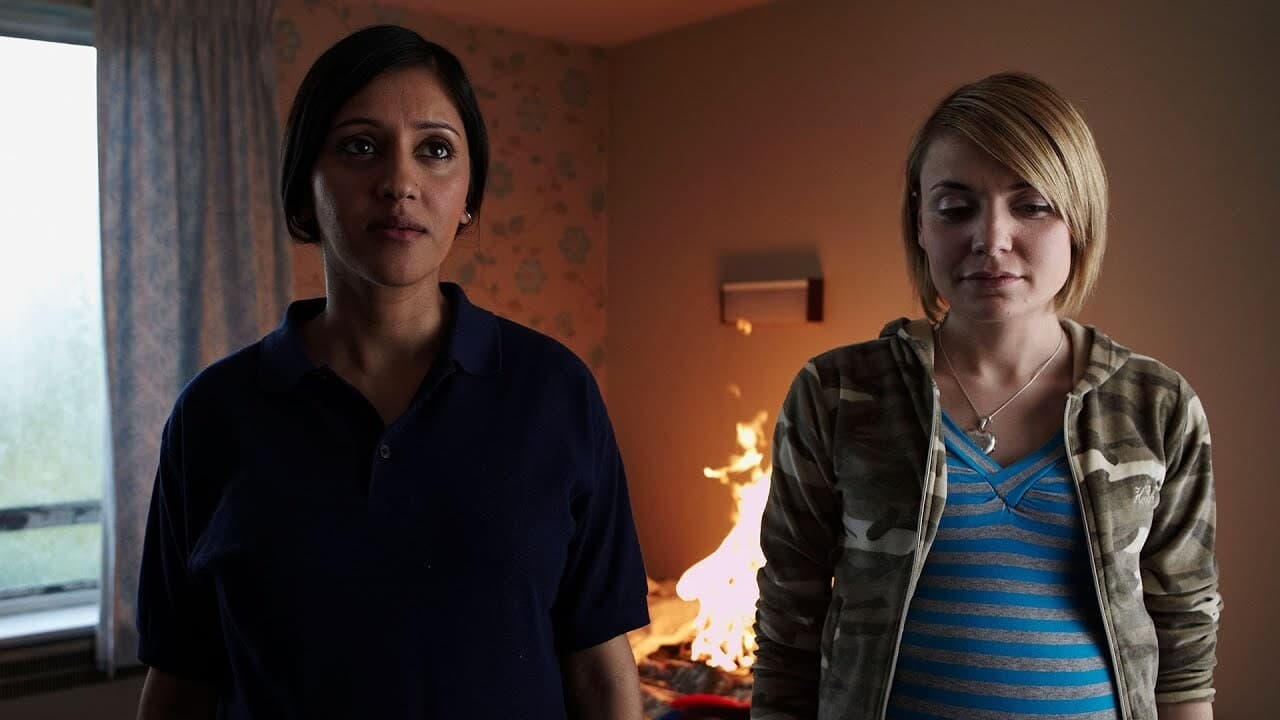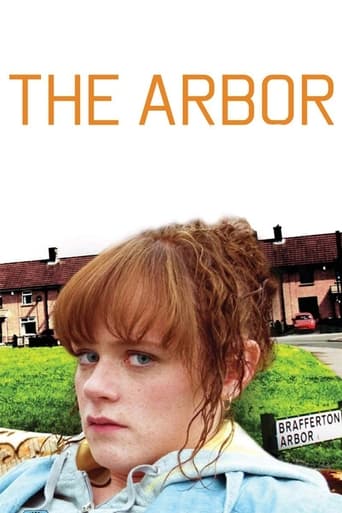Interesteg
What makes it different from others?
AshUnow
This is a small, humorous movie in some ways, but it has a huge heart. What a nice experience.
filippaberry84
I think this is a new genre that they're all sort of working their way through it and haven't got all the kinks worked out yet but it's a genre that works for me.
Beulah Bram
A film of deceptively outspoken contemporary relevance, this is cinema at its most alert, alarming and alive.
yellowcow8
I go into movies with no expectations...also I had no clue who was Andrea Dunbar so that really didn't help. I felt like I just wasted an hour and half watching this film. Nearly all positive reviews comment on how creative Clio Barnard is with the verbatim theater, AKA "lip synching". Sure, it's interesting for a few minutes but the novelty wore off...it would have achieved the same results if they used the original footage of interviews. Perhaps the techniques were too artsy for me.This "docudrama" focused on Andrea then transitioned to Lorraine...both figures are equally tragic but it makes me sad how irresponsible people are, especially with children involved. Neither women are fit to be mothers...it's like an extended episode of a bad reality TV show where the cameras follow people who are trainwrecks. Yes, I realize alcohol and drug addictions consume lives but they have no one to blame but themselves. It's hard to pull for any of the characters.The story itself is very slow moving. The only bright moment was Lorraine dancing on top of her dad's car...it was a sweet moment of innocence. The film would have been better served if it's half an hour shorter and played on PBS.
MrJamesBlack
Andrea Dunbar was something of a child prodigy growing up on the underprivileged Buttershaw Estate in Bradford. Dunbar wrote her first play The Arbor, (named after the street on which she lived Brafferton Arbor,) at the tender age of 15. The play, which debuted at the Royal Court Theatre in 1980, depicts the turbulent life of pregnant teenager with a father who is an abusive alcoholic. In 1982 Dunbar wrote the follow up Rita, Sue and Bob Too! which was later turned into a film by the director Alan Clarke. By 1990, at just 29 years old, Andrea Dunbar was dead, killed by an apparent brain haemorrhage the talented author left behind three young children. Artist and filmmaker Clio Barnard's new biopic, also entitled The Arbor, attempts not only to tell Andrea's story but also that of her eldest daughter Lorraine, who was imprisoned in 2007 for the manslaughter of her son Harris.A drama/documentary in the truest, and perhaps newest, sense of the phrase The Arbor utilizes archive footage culled from television documentaries such as Arena and Look North, an original technique where actors lip-sync to the voices of the real life participants in Dunbar's troubled life and impromptu performances of the author's work taking place on the Buttershaw Estate. Theoretically speaking this multi-layered approach sounds as if it might be somewhat confusing and imprecise in practice however it is a revelation being both innovative and inspiring. With a shifting timeframe and multiple story telling techniques the resulting film not only offers a detailed insight into the lives of Andrea Dunbar and her daughter Lorraine but also into that whole section society recently dubbed 'Broken Britain.' The film begins in the present day with Dunbar's two daughters Lorraine (Manjinder Virk) and Lisa (Christine Bottomley) telling of their childhood and formative years. These scenes, in which the actors address the camera and lip-sync their speech to actual voices of the people they are portraying are carried off with remarkable accuracy and have a haunting quality to them. It is as if the actors are channelling those involved from another time and place with a story yet to be told. The voices of the interviewees are filled with regret rather than anger at wasted opportunities and what might have been, there is also a great deal of understanding at the circumstances and pressures each of them have faced in the past.Life has been particularly difficult for eldest daughter Lorraine growing up as a mixed-race child a predominately white estate she was racially abused on a daily basis for having a Pakistani father. Just 10 years old when her mother passed away Lorraine would later turn to prostitution to feed her drug habit. As her life quickly spiralled out of control she fell pregnant by one of her clients and struggled to bring up her child.The documentary footage of Andrea Dunbar shows the author at home on the Buttershaw Estate where she continued to live until her untimely death. The semi-biographical nature of Dunbar's writing is obvious in the remarkable similarity between her own family and the characters of her creation. Given the present day world of celebrity these scenes, (in which fame appears to have been foisted upon an unassuming talent,) are reminiscent of the countless reality TV stars that are ill-prepared for the spotlight.The scenes in which parts of Dunbar's plays that are acted out on the estate are excellent giving off the urgency and realism of the writing. As the current residents loiter in the background Natalie Gavin who plays the young Andrea enthusiastically explains her work to the camera before launching into another energetic performance.At the conclusion of The Arbor Lorraine, who has now released from prison after serving 3 years for the manslaughter of her son, tells us that her life reflects many inhabitants of the Buttershaw Estate. Where once the social problems were those of unemployment, poverty and alcoholism the estate has deteriorated further becoming a ghetto of drug dealing, crime and disorder. Lorraine tells us that if her mother were to write Rita Sue and Bob Too! in the present day, "Rita and Sue would be smackheads." The lasting influence of Andrea Dunbar's writing can be found in modern British film and television not least in the television drama Shameless which depicts life on the Chatsworth Estate with a similar combination of bawdy humour and satirical knowingness. The Arbor's unusual but innovative approach to drama/documentary uncovers, like Dunbar's plays, the hardship and problems which lie at the heart of working-class Britain, (albeit in a completely different manner.) Exploring the life of a significant contributor to British working-class fiction The Arbor like Andrea Dunbar herself is too authentic and insightful to ignore.
Sindre Kaspersen
Clio Barnard's biographical documentary gives a multifaceted portrayal of British dramatist Andrea Dunbar and her family.Andrea Dunbar grew up with seven siblings in suburban housing estate Bafferton Arbor in Bradford, England. At the age of 15 in the early 1960s she began writing her first play "The Arbor" which described the experiences of a pregnant teenager who was abused by her drunken father. Her first play had it's premiere at The Royal Court Theater in London 1980.Through interviews with family members, neighbours and colleagues, this genre varied documentary/theater setup/feature film depicts the short though momentous lifetime of playwright and mother of three Andrea Dunbar (1961-1990), centring on the strained relationship between her and her daughter Lorraine. "The Arbor" is eminently directed by English filmmaker Clio Barnard who with characterizing close ups and subtle camera movements creates sharp and prominent portraits of men and women. The color harmonic cinematography from Ole Bratt Birkeland interacts and forms strong contrasts to the overt stories and the unwitting mood which is partially relieved by the theatrical and vibrant scenes which recreates parts of the playwright's debut performance "The Arbor" from 1977. Even though the acting is vivid and expressive in the earlier mentioned scenes, the film is most convincing in the interview scenes where lip-sync was used by professional actors. The pace varies in accordance with the takes shifting length and the versatile narrative makes this gripping character portrait an archetypal full-length documentary debut where faith plays a central part.
Geoff Clout
I loved everything about this sad film. The technique of post syncing shouldn't have worked, nor the acting of the play on the streets either, but they really do.The pacing of the original interviews is very interesting,very steady. There is something marvellous about the way the accents are subtly yet profoundly different from those that actors generally impose, and knowing that these voices are those of the actual people was very moving.Seeing the real people in what would normally have been flashback but in this case is views into a previous documentary really worked.This is a very powerful story of a tragedy with very little joy. When I see Rita, Sue and Bob Too again, one of my favourite films and one that puts most other working class depictions into a cocked hat, I wonder what my mood will be.

